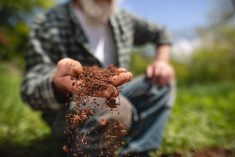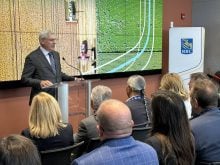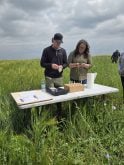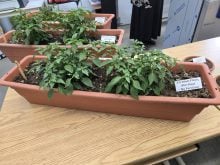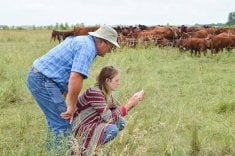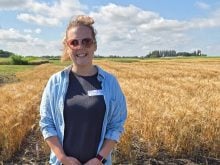A website that will pair landowners with livestock producers in search of grazing land, and a cost-shared consultant agronomy program are two projects the Manitoba Organic Alliance (MOA) is taking on in a project called “Improving soil stewardship on Manitoba organic farms” funded by the Conservation Trust.
“Organic farms are really well positioned to be improving their soil health from their current standpoint and also in reducing greenhouse gas emissions because, as you know, there is no nitrogen fertilizers used so we already have that,” said Karen Klassen, MOA’s program manager.
Read Also

Flour production slumps in the U.S., increases in Canada
U.S. flour production in 2025 was the lowest in 14 years.
“(Organic farmers) just can add to that by making sure we’re using the nutrients as efficiently as possible and building up our soil even more,” she added.
The project, announced in the organization’s newsletter May 3, will use a suite of activities, including existing extension work, field tours, and workshops, to help organic farmers improve soil health. The intent is to boost fall cover crops, use of perennials, livestock integration; to reduce tillage, and to improve crop rotations.
The Conservation Trust funded the project for $100,000. The Conservation Trust is a fund the province began in 2018, which is managed by the Winnipeg Foundation and the Manitoba Habitat Heritage Corporation.
As part of the project, MOA will build a website that “will match people with livestock with people with land,” said Klassen.
She said many people with livestock are searching for grazing land and a growing number of farmers are thinking about integrating livestock into their farms — for instance, an organic farmer may want cattle to graze a field during a green manure year.
The website is in its early stages. Klassen said they hope to have it up by November. It’s open to organic and conventional farmers.
Also in the works, a consulting agronomy program for farmers who attend MOA workshops and want to integrate or boost soil health practices on their land — cost shared 50-50 to a maximum of $7,000.
In a separate endeavour, MOA is also partnering with Quebec miller and cereal processer La Milanaise, SeCan and Alliance Seed to run on-farm trials on organic wheat varieties. La Milanaise wants to source organic wheat in Manitoba, said Klassen. It’s most familiar with wheat varieties grown in Quebec, and is testing these to see how they grow in Manitoba.






